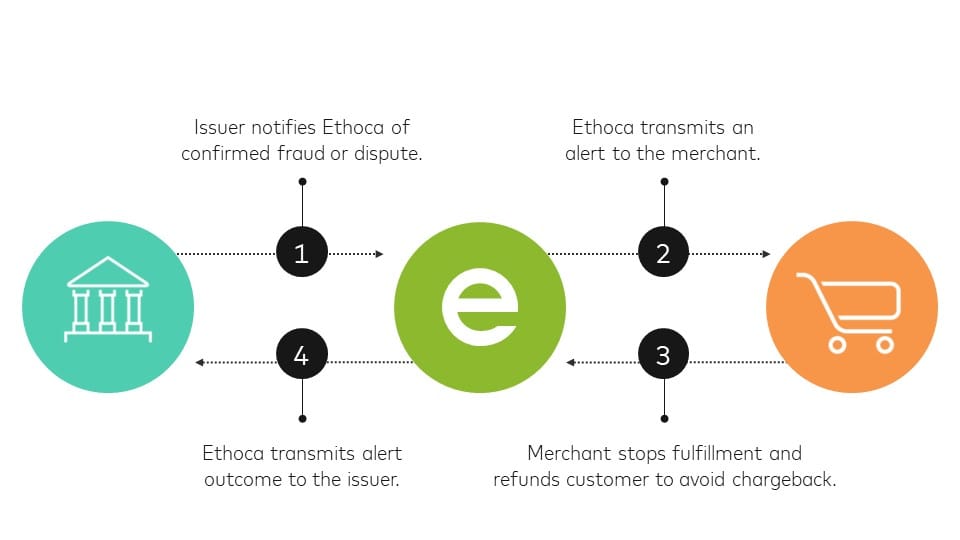
SuperPay helps automotive repair professionals like yourself get paid as quickly as possible. Choose our platform to power your payments & billing.
Welcome to our blog post on extended warranties in auto repair insights! If you're a car owner, you know that unexpected repairs can be a major financial burden. That's where extended warranties come in. In this post, we will delve into the basics of extended warranties in auto repairs, discuss their importance, and explore the benefits they offer. We will also look at potential risks of not having an extended warranty and provide tips on how to choose the right one for your vehicle. Additionally, we will guide you on managing and maximizing your extended warranties, including making claims, understanding coverage, and avoiding warranty voidance. To provide a comprehensive understanding, we will also share real-life case studies and success stories related to extended warranties in auto repairs. So, whether you're contemplating purchasing an extended warranty or simply curious about their impact on the auto repair industry, you've come to the right place. Let's dive in and gain valuable insights into extended warranties in auto repairs!
Understanding the Basics: What are Extended Warranties in Auto Repairs
Extended warranties in auto repairs are essentially service contracts that provide coverage for specified repairs and maintenance beyond the manufacturer's original warranty period. While the manufacturer's warranty typically lasts for a specific duration or mileage, extended warranties offer an extended period of coverage for potential mechanical or electrical failures.
Definition and Purpose of Extended Warranties:Extended warranties serve as an additional layer of protection for vehicle owners, giving them peace of mind knowing that they are financially safeguarded against unexpected repair costs. These warranties are typically offered by third-party companies or dealerships and can be purchased at the time of vehicle purchase or later as an add-on.
Coverage Details:Extended warranties vary in terms of coverage. They may cover a wide range of repairs, including engine and transmission repairs, electrical system failures, suspension issues, and more. It is important to carefully review the warranty contract to understand exactly what is covered and any exclusions or limitations.
Duration and Mileage Limits:Extended warranties come with specific duration and mileage limits, which can vary depending on the provider and the plan chosen. Some warranties may have a time limit, such as five years, while others may have a mileage limit, such as 100,000 miles. It's crucial to understand these limits to ensure the warranty meets your needs.
Cost of Extended Warranties:The cost of extended warranties varies depending on factors such as the vehicle make, model, age, mileage, and the level of coverage desired. It's important to compare prices from different providers and consider the overall value the warranty offers before making a decision.
Transferability and Cancellation:Extended warranties often come with transferability options, allowing the warranty to be transferred to a new owner if the vehicle is sold. Additionally, it's essential to understand the cancellation policy of the warranty, including any fees or requirements that may be involved.
Understanding the basics of extended warranties in auto repairs is crucial before delving into their importance and benefits. By having a clear understanding of what extended warranties are and how they work, you'll be better equipped to make informed decisions regarding your vehicle's protection.
The Importance of Extended Warranties in Auto Repairs
Extended warranties play a significant role in the world of auto repairs, offering several important benefits and providing peace of mind to vehicle owners. In this section, we will explore why extended warranties are necessary, the benefits they offer, and the potential risks of not having one.
Protection against Costly Repairs:One of the primary reasons extended warranties are important is that they protect vehicle owners from incurring substantial repair costs. As vehicles age, the likelihood of mechanical or electrical failures increases, and these repairs can be expensive. With an extended warranty, the financial burden of these repairs is shifted to the warranty provider, saving the owner from unexpected expenses.
Peace of Mind:Extended warranties provide peace of mind to vehicle owners, knowing that they are covered in the event of a breakdown or malfunction. This peace of mind allows owners to drive with confidence, knowing that they have a safety net in place to handle any unexpected repairs that may arise.
Convenience and Hassle-Free Repairs:Having an extended warranty ensures a smoother and more convenient repair process. Rather than having to search for a reputable repair shop, negotiate costs, and deal with the administrative aspects of the repair, owners can simply take their vehicle to an authorized repair facility and have the covered repairs handled directly by the warranty provider.
Preserving Resale Value:Another significant advantage of extended warranties is their potential to preserve the resale value of a vehicle. When selling a used car, having a transferable extended warranty can be a valuable selling point for potential buyers, as it provides them with the same peace of mind and protection against future repairs.
Coverage for Advanced Technologies:Modern vehicles are equipped with sophisticated and advanced technologies, such as infotainment systems, sensors, and driver-assistance features. These technologies can be costly to repair or replace. Extended warranties often cover these advanced systems, ensuring that owners are protected from the high expenses associated with their maintenance or repair.
While extended warranties are essential for many vehicle owners, it's important to weigh the benefits against the cost and carefully consider the specific terms and conditions of the warranty. By understanding the importance of extended warranties in auto repairs, owners can make informed decisions to protect their investment and avoid potential financial risks.
How to Choose the Right Extended Warranty for your Vehicle
Selecting the right extended warranty for your vehicle is a critical decision that requires careful consideration. In this section, we will discuss the factors to consider when choosing an extended warranty, the different types available, and provide tips on negotiating for the best warranty deals.
Factors to Consider When Choosing Extended Warranties:
- Vehicle Age and Mileage: The age and mileage of your vehicle will impact the availability and cost of extended warranties. Some warranties may have restrictions based on these factors, so it's important to find one that suits your specific vehicle's needs.
- Coverage Options: Evaluate the coverage options offered by different warranty providers. Consider the specific parts and repairs covered, as well as any exclusions or limitations.
- Reputation and Financial Stability: Research the reputation and financial stability of the warranty provider. Look for companies with a solid track record and positive customer reviews to ensure they will be reliable when it comes to honoring claims.
- Deductibles and Claim Procedures: Understand the deductibles associated with the warranty and the claim procedures. Consider the ease of making claims and any additional fees or requirements.
- Transferability: If you plan to sell your vehicle before the warranty expires, check if the warranty is transferable. A transferable warranty adds value to the vehicle and can be an attractive selling point.
Understanding Different Types of Extended Warranties:
- Manufacturer Extended Warranties: These warranties are offered by the vehicle manufacturer and typically provide comprehensive coverage. They can be purchased at the time of vehicle purchase or before the original warranty expires.
- Third-Party Extended Warranties: These warranties are offered by independent companies and are often more flexible in terms of coverage and pricing options. Research different third-party warranty providers to find one that offers comprehensive coverage at a reasonable cost.
Tips on Negotiating for the Best Warranty Deals:
- Shop Around: Obtain quotes from multiple warranty providers to compare prices and coverage options. This will help you identify the best value for your money.
- Review the Fine Print: Carefully read and understand the terms and conditions of the warranty contract. Pay attention to coverage limits, exclusions, deductibles, and claim procedures.
- Negotiate Pricing and Terms: Don't be afraid to negotiate the cost and terms of the warranty. Some providers may be willing to offer discounts or customize the warranty to meet your specific needs.
- Consider Bundling: If you already have other insurance policies, such as home or auto insurance, inquire about bundling options. Some providers may offer discounted rates for bundling multiple policies.
By considering these factors, understanding the different types of extended warranties, and negotiating effectively, you can choose the right extended warranty for your vehicle that provides comprehensive coverage and peace of mind.

Managing and Maximizing Your Extended Warranties
Once you have chosen and purchased an extended warranty for your vehicle, it's crucial to understand how to effectively manage and maximize its benefits. In this section, we will discuss how to make claims on your warranty, understand what's covered and what's not, how to avoid voiding your warranty, and provide tips to get the most out of your warranty.
How to Make Claims on Your Warranty:
- Familiarize Yourself with the Claim Process: Review the warranty contract to understand the specific steps and requirements for making a claim. This may include notifying the warranty provider, obtaining authorization, and choosing an authorized repair facility.
- Keep Documentation: Maintain a record of all maintenance and repairs performed on your vehicle. This documentation will be essential when making a claim, as it provides evidence of proper maintenance and validates the need for repairs.
- Follow Claim Procedures: Adhere to the claim procedures outlined by the warranty provider. Failure to follow these procedures may result in a denial of the claim.
Understanding What's Covered and What's Not:
- Review the Warranty Contract: Thoroughly read and understand the warranty contract to know what repairs and components are covered. Pay attention to any limitations, exclusions, or specific conditions that may apply.
- Wear and Tear vs. Mechanical Breakdown: Understand the difference between wear and tear and mechanical breakdown. While mechanical breakdowns are typically covered, wear and tear may not be included in the warranty coverage.
- Parts and Labor Coverage: Clarify whether the warranty covers both parts and labor costs or only specific components. This will give you a clear idea of what expenses you may still be responsible for.
How to Avoid Voiding Your Warranty:
- Follow Maintenance Schedule: Adhere to the manufacturer's recommended maintenance schedule and keep records of all services performed. Failure to maintain your vehicle properly may result in voiding the warranty.
- Use Authorized Repair Facilities: Ensure that all repairs and maintenance are performed by authorized repair facilities. Using unauthorized mechanics or performing DIY repairs can potentially void the warranty.
- Avoid Modifications: Modifying your vehicle, such as installing aftermarket parts or making significant alterations, may void the warranty. Consult the warranty contract or contact the warranty provider if you are unsure about any modifications.
Tips to Get the Most Out of Your Warranty:
- Regular Maintenance: Keep up with regular maintenance to prevent major issues and ensure that your vehicle is in optimal condition.
- Timely Repairs: Address any potential issues promptly to prevent them from escalating into more significant problems that may not be covered by the warranty.
- Understand Additional Benefits: Some extended warranties may offer additional benefits such as roadside assistance or rental car coverage. Familiarize yourself with these benefits and take advantage of them when needed.
By effectively managing and maximizing your extended warranty, you can ensure that you fully utilize its benefits and avoid any potential pitfalls that may void the coverage. Following the claim procedures, understanding coverage details, avoiding warranty voidance, and making the most of your warranty can provide you with peace of mind and financial protection for your vehicle.
Case Studies on Extended Warranties in Auto Repairs
In this final section, we will explore real-life case studies that highlight the impact and experiences of extended warranties in auto repairs. By examining these cases, we can gain valuable insights into the effectiveness and benefits of extended warranties, as well as their impact on the auto repair industry.
Real-life Experiences with Extended Warranties:
- Case Study 1: John's Story - A car owner shares his experience of having an extended warranty and how it saved him from significant repair costs when his transmission failed.
- Case Study 2: Sarah's Story - Sarah discusses her decision to purchase an extended warranty for her used vehicle and the peace of mind it provided when her engine required major repairs.
- Case Study 3: Mike's Story - Mike shares his experience with a third-party extended warranty and how it covered the costs of multiple electrical system repairs in his vehicle.
The Impact of Extended Warranties on Auto Repair Businesses:
- Case Study 4: ABC Auto Repair Shop - A local repair shop discusses the impact of extended warranties on their business, including increased customer traffic and the challenges of working with different warranty providers.
- Case Study 5: XYZ Dealership - A dealership shares their perspective on extended warranties, discussing how they have become an important selling point for new and used vehicles, attracting customers and boosting sales.
Success Stories of Extended Warranties:
- Case Study 6: Jane's Success Story - Jane shares her positive experience with an extended warranty that covered the costs of multiple repairs over the years, ultimately saving her thousands of dollars.
- Case Study 7: Dave's Success Story - Dave talks about how an extended warranty saved him from financial strain when his vehicle's powertrain needed to be replaced unexpectedly, highlighting the importance of having comprehensive coverage.
By examining these case studies, we can gain a deeper understanding of the real-life impact and benefits of extended warranties in auto repairs. These stories provide valuable insights into the financial protection they offer to vehicle owners, their influence on repair businesses, and the peace of mind they bring to individuals facing unexpected repair costs.
Final Assessment
Exploring the nuances of extended warranties in the auto repair industry reveals valuable insights that can benefit both service providers and vehicle owners. Understanding these key insights, such as coverage options and cost considerations, empowers individuals to make informed decisions when it comes to safeguarding their automotive investments and ensures auto repair businesses can effectively communicate the value of these offerings to their customers.


